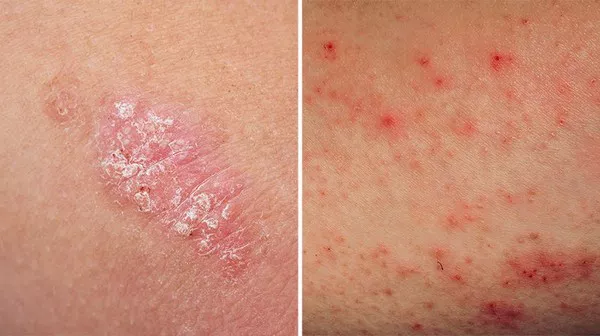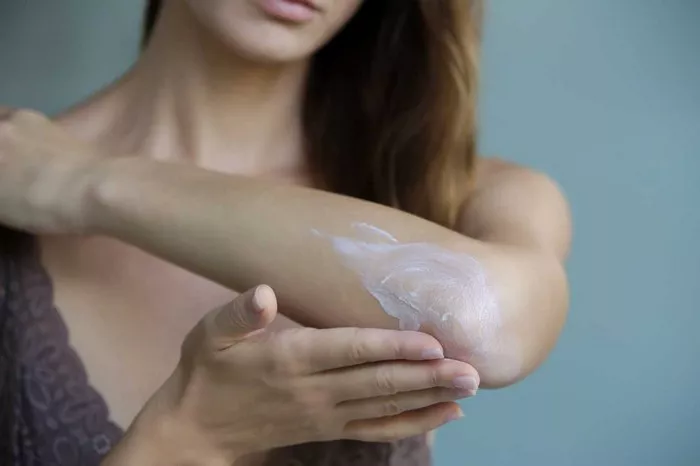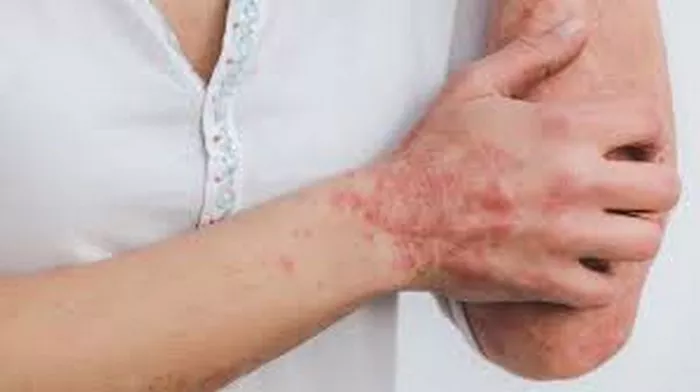Psoriasis is a chronic autoimmune condition that affects the skin, causing red, scaly patches to appear. Among its various forms, plaque psoriasis stands out as the most common manifestation, characterized by its distinctive plaque-like lesions. While both terms are often used interchangeably, it’s essential to recognize the nuances that differentiate psoriasis from plaque psoriasis. This article delves into the intricacies of these conditions, exploring their symptoms, causes, risk factors, and treatment options to provide a comprehensive understanding for patients and healthcare professionals alike.
Psoriasis: A Complex Autoimmune Disorder
Psoriasis is a multifactorial autoimmune disorder that affects approximately 2-3% of the global population. It is characterized by an accelerated skin cell growth cycle, leading to the rapid accumulation of cells on the skin’s surface. This abnormal proliferation results in the formation of thick, red patches with silvery scales, known as plaques.
The exact cause of psoriasis remains elusive, but it is widely believed to involve a combination of genetic predisposition, immune system dysfunction, and environmental triggers. Genetic factors play a significant role, with certain gene mutations, particularly within the HLA-C gene, increasing susceptibility to the condition. Immune dysregulation, particularly involving T cells and cytokines, contributes to the inflammatory response observed in psoriatic lesions.
Plaque Psoriasis: The Most Common Variant
Plaque psoriasis, also referred to as psoriasis vulgaris, represents the most prevalent form of psoriasis, accounting for approximately 80-90% of cases. It is characterized by the presence of well-defined plaques on the skin, typically appearing on the elbows, knees, scalp, and lower back. These plaques often exhibit a silvery-white scale and may be accompanied by itching, pain, or discomfort.
The distinctive appearance of plaque psoriasis stems from the excessive proliferation of keratinocytes, the predominant cells in the epidermis. In healthy individuals, keratinocytes undergo a cycle of proliferation, differentiation, and shedding, maintaining the integrity of the skin barrier. However, in plaque psoriasis, this process is dysregulated, resulting in the rapid turnover of cells and the formation of thickened plaques.
Distinguishing Features of Plaque Psoriasis
Several key features differentiate plaque psoriasis from other forms of the condition:
1. Plaque Formation: The hallmark feature of plaque psoriasis is the formation of well-defined plaques, ranging in size from small patches to larger areas of involvement. These plaques typically exhibit erythematous (red) bases covered with silvery-white scales.
2. Location: Plaque psoriasis commonly affects extensor surfaces such as the elbows and knees, as well as the scalp, lower back, and nails. However, it can also manifest in other areas of the body, including the palms, soles, and genitals.
3. Symptomatology: Patients with plaque psoriasis often experience symptoms such as itching, burning, or soreness in affected areas. The severity of symptoms can vary depending on the extent of skin involvement and individual factors.
4. Chronicity: Plaque psoriasis is a chronic condition characterized by periods of exacerbation and remission. While symptoms may improve with treatment, they often recur over time, necessitating long-term management strategies.
Treatment Approaches for Psoriasis and Plaque Psoriasis
The management of psoriasis, including plaque psoriasis, typically involves a multidisciplinary approach tailored to the individual patient’s needs. Treatment strategies aim to alleviate symptoms, reduce inflammation, and prevent disease progression. Some common therapeutic modalities include:
1. Topical Therapies: Topical corticosteroids, vitamin D analogs, retinoids, and calcineurin inhibitors are commonly prescribed for mild to moderate plaque psoriasis. These medications help reduce inflammation, normalize cell turnover, and alleviate symptoms when applied directly to the affected skin.
2. Phototherapy: Phototherapy, or light therapy, involves exposing the skin to ultraviolet (UV) light under medical supervision. Both narrowband UVB and PUVA (psoralen plus UVA) are effective in treating plaque psoriasis by suppressing immune activity and slowing cell turnover.
3. Systemic Treatments: For severe or refractory cases of plaque psoriasis, systemic medications may be necessary. These include oral retinoids, methotrexate, cyclosporine, and biologic agents such as TNF-alpha inhibitors, IL-17 inhibitors, and IL-23 inhibitors. These medications work by targeting specific components of the immune system involved in the pathogenesis of psoriasis.
4. Lifestyle Modifications: Lifestyle modifications, including stress management, smoking cessation, and maintaining a healthy weight, can help improve overall well-being and reduce psoriasis severity. Avoiding triggers such as certain medications, infections, and skin injuries is also important in managing the condition.
Conclusion
Psoriasis and plaque psoriasis represent complex autoimmune disorders with distinct clinical presentations and treatment considerations. While psoriasis encompasses a spectrum of manifestations, plaque psoriasis stands out as the most common and recognizable form, characterized by its distinctive plaque-like lesions. Understanding the differences between these conditions is crucial for accurate diagnosis and appropriate management.
Effective management of psoriasis, including plaque psoriasis, requires a multidisciplinary approach involving dermatologists, rheumatologists, primary care physicians, and other healthcare professionals. By implementing a combination of topical therapies, phototherapy, systemic medications, and lifestyle modifications, patients can achieve symptom relief and improve their quality of life despite the chronic nature of the condition. Ongoing research into the underlying mechanisms of psoriasis holds promise for the development of novel therapies that may offer even greater efficacy and tolerability in the future.
Related Topics:
the Best Retinol Cream for Psoriasis

























